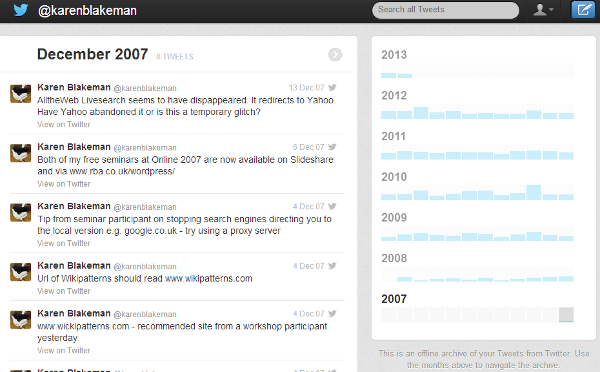Just when you’ve finally worked out how to search some of the key UK government web resources they disappear into the black hole that is GOV.UK.
The statistics publication hub went over a few weeks ago and the link http://www.statistics.gov.uk/ now redirects to http://www.gov.uk/government/statistics/announcements. Similarly, Companies House is now to be found at http://www.gov.uk/government/organisations/companies-house and the Land Registry is at http://www.gov.uk/government/organisations/land-registry. Most of the essential data, such as company information and ownership of properties, can still be found via GOV.UK and in fact some remains in databases on the original websites. For example, following the links on GOV.UK for information on a company eventually leads you to the familiar WebCHeck service at http://wck2.companieshouse.gov.uk/. Companies House useful list of overseas registries, however, seems to have totally disappeared but is in fact hidden in a general section covering all government “publications” (http://www.gov.uk/government/publications/overseas-registries#reg).
Documents may no longer be directly accessible from the new departmental home pages so a different approach is needed if you are conducting in-depth research. GOV.UK is fine for finding out how to renew your car tax or book your driving theory test – two of the most popular searches at the moment – but its search engine is woefully inadequate when it comes to locating detailed technical reports or background papers. Using Google’s or Bing’s site command to search GOV.UK is the only way to track them down quickly, for example biofuels public transport site:www.gov.uk. Note that you need to include the ‘www’ in the site command as site:gov.uk would also pick up articles published on local government websites. This assumes, though, that the document you are seeking has been transferred over to GOV.UK.
There have been complaints from researchers, including myself, that an increasing number of valuable documents and research papers have gone AWOL as more departments and agencies are assimilated Borg-like by GOV.UK. Some of the older material has been moved to the UK Government Web Archive at http://www.nationalarchives.gov.uk/webarchive/.

This offers you various options including an A-Z of topics and departments and a search by keyword, category or website. The latter is slow and clunky with a tendency to keel over when presented with complex queries. I have spent hours attempting to refine my search and wading through page after page of results only to find that the article I need is not there, nor anywhere else, which is an experience several of my colleagues have had. This has led to conspiracy theories suggesting that the move to GOV.UK has provided a golden opportunity to “lose” documents.
I am reminded of a scene from Yes Minister:
James Hacker: [reads memo] This file contains the complete set of papers, except for a number of secret documents, a few others which are part of still active files, some correspondence lost in the floods of 1967…
James Hacker: Was 1967 a particularly bad winter?
Sir Humphrey Appleby: No, a marvellous winter. We lost no end of embarrassing files.
James Hacker: [reads] Some records which went astray in the move to London and others when the War Office was incorporated in the Ministry of Defence, and the normal withdrawal of papers whose publication could give grounds for an action for libel or breach of confidence or cause embarrassment to friendly governments.
James Hacker: That’s pretty comprehensive. How many does that normally leave for them to look at?
James Hacker: How many does it actually leave? About a hundred?… Fifty?… Ten?… Five?… Four?… Three?… Two?… One?… *Zero?*
Sir Humphrey Appleby: Yes, Minister.
From “Yes Minister” The Skeleton in the Cupboard (TV Episode 1982) – Quotes – IMDb http://www.imdb.com/title/tt0751825/quotes
For “floods of 1967” substitute “transfer of files to GOV.UK”.




